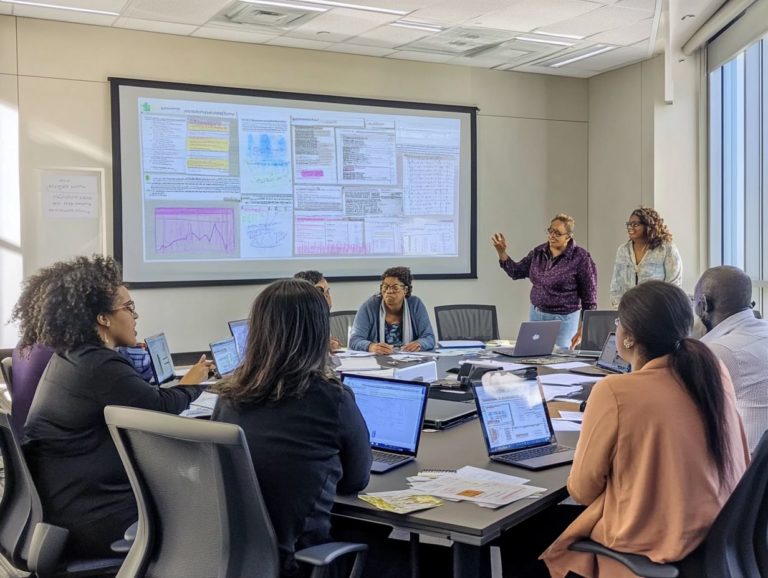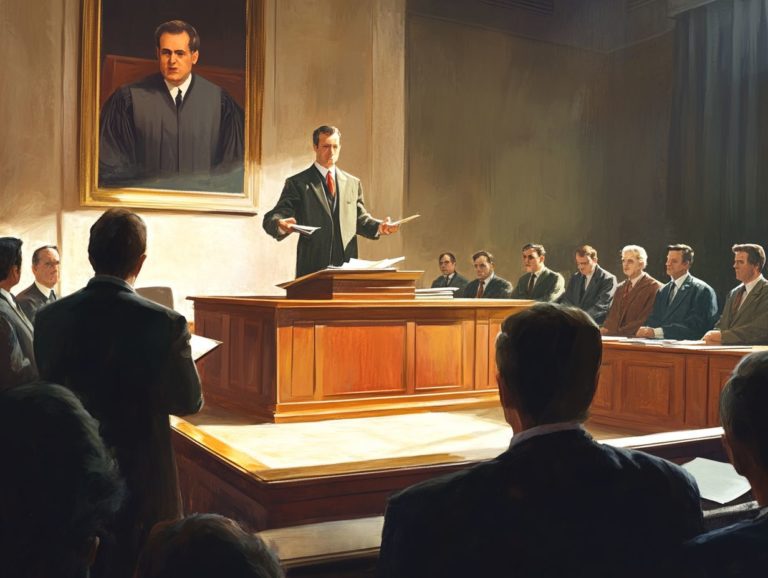Using Public Opinion in Defense Strategies
Public opinion holds significant sway in the outcomes of legal cases, impacting everything from jury decisions to media portrayals.
This article delves into the definition and importance of public opinion within the legal landscape. We will explore how to effectively integrate it into your defense strategies.
You ll discover both the advantages and limitations of leveraging public sentiment. We will highlight case studies where public opinion has influenced results, illustrating its powerful impact.
Ethical considerations are also examined to ensure fair representation throughout this exploration.
Join us as we explore the compelling intersection of public perception and legal defense.
Contents
- Key Takeaways:
- Understanding Public Opinion
- Using Public Opinion in Defense Strategies
- Collecting and Analyzing Public Opinion
- Case Studies of Successful Use of Public Opinion in Defense
- Ethical Considerations
- Frequently Asked Questions
- What is the role of public opinion in defense strategies?
- How can public opinion be used to inform defense strategies?
- What are the benefits of using public opinion in defense strategies?
- Are there any limitations to using public opinion in defense strategies?
- How often should public opinion be monitored for defense strategies?
- Can public opinion also influence defense budget allocations?
Key Takeaways:

- Public opinion can affect legal outcomes.
- Use public opinion wisely in defending cases.
- Effective use can provide valuable insights and support for defense arguments.
- Acknowledge the limitations of public sentiment.
- Collect and analyze public opinion using ethical methods to ensure fair representation of diverse perspectives.
Understanding Public Opinion
Understanding public opinion is essential in Taiwan’s geopolitical landscape and its ties with the U.S., particularly regarding defense strategies and security dynamics in the Taiwan Strait.
This comprehension enables you to assess how Taiwanese citizens view national defense policies and their commitment to self-defense amid potential Chinese aggression.
As tensions rise with the People’s Liberation Army (PLA) and the threat of invasion looms, detailed information from public opinion surveys can equip researchers, policymakers, and democracy advocates with the sentiments that influence Taiwan’s defense strategies and crisis preparedness.
Definition and Importance in Legal Cases
In legal cases, public opinion acts as a vital measure of public values and opinions, especially in Taiwan, where citizen sentiments increasingly shape defense policies and national security.
This trend is particularly noticeable in recent high-profile cases concerning national security laws. Community perspectives can significantly influence judicial outcomes and approaches.
For instance, during the widespread outcry over the controversial arrest of pro-independence activists, the government faced immense pressure to justify its actions to the public.
As anxieties regarding the relationship between Taiwan and China mount, the voices of Taiwanese citizens have the potential to guide legal frameworks and enforcement practices.
For lawyers representing clients in these cases, it s essential to navigate not just the regulations but also the intricate emotional landscape crafted by public consensus. This landscape often dictates the very atmosphere of a trial.
Using Public Opinion in Defense Strategies
Effectively harnessing public opinion in defense strategies enables Taiwan’s government to align military objectives with the expectations and concerns of its citizens. This establishes a solid foundation for national security amid shifting geopolitical dynamics.
As the U.S. bolsters its military presence in the region, it becomes essential to grasp the sentiments of the Taiwanese public regarding potential war scenarios. Understanding their reactions to PLA military drills is crucial for crafting comprehensive defense policies that resonate with the community’s resolve and readiness to face crises.
Benefits and Limitations
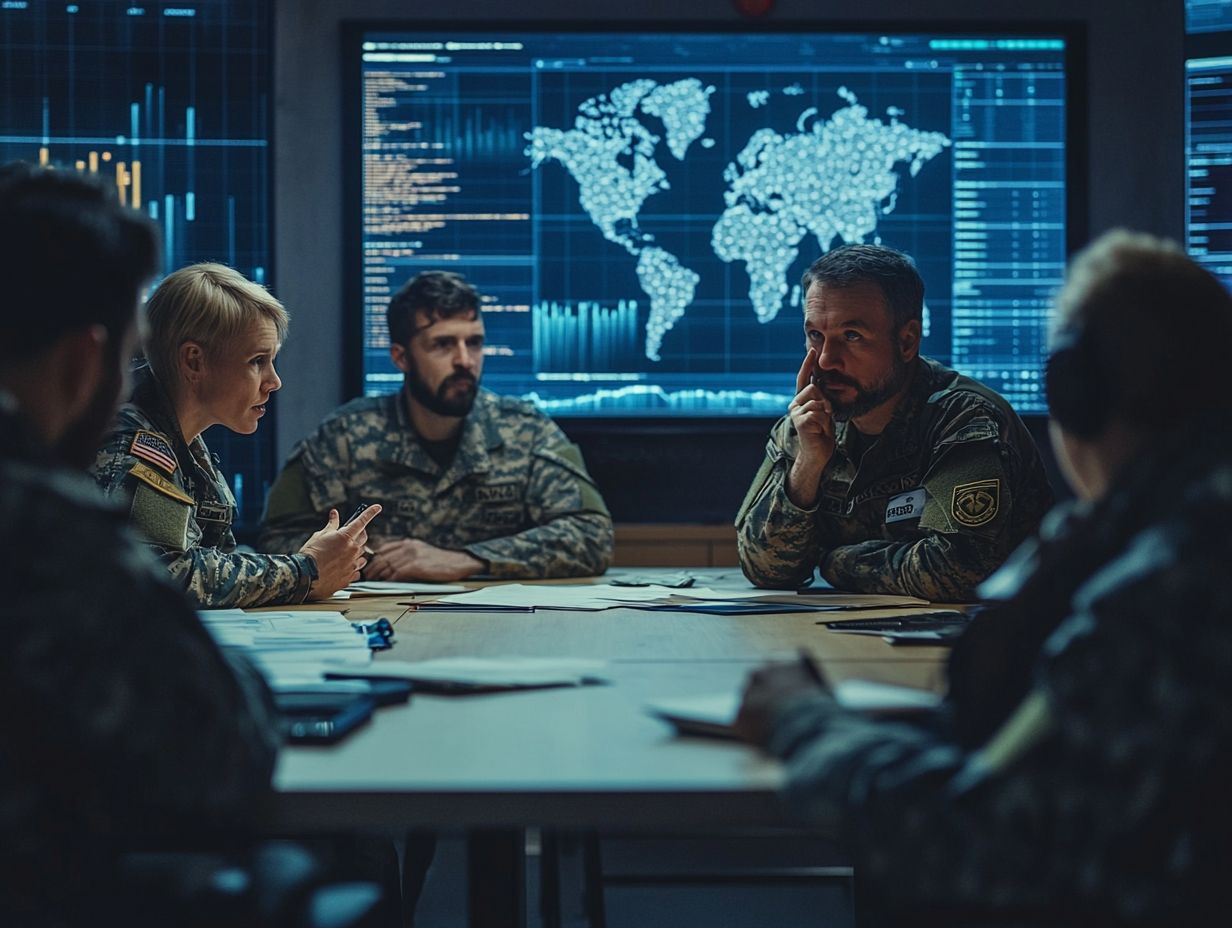
Integrating public opinion into defense strategies provides significant benefits, including enhanced legitimacy and support for military policies in Taiwan. However, you must remain vigilant about potential limitations from misinterpretations or biases in polling data.
You can align military actions with the values of the populace. This fosters unity and purpose. For instance, during territorial conflicts, public sentiment can shape responses to perceived threats, as seen in community backing for military drills.
Relying on public opinion has challenges. For instance, survey methods can sometimes skew results. Consider the 2003 Iraq War: initial public support shifted drastically as the conflict unfolded, raising critical questions about military strategies and overall readiness.
Ultimately, grasping these complexities is essential for national security. The ebb and flow of public sentiment directly influences troop morale and operational effectiveness.
Collecting and Analyzing Public Opinion
Collecting and analyzing public opinion in Taiwan requires a variety of methods that effectively capture the dynamic attitudes of its citizens regarding defense and security issues. This is especially crucial given the backdrop of Chinese military threats and U.S. commitments.
Researchers utilize data-driven approaches, including surveys, polls, and simulations, to gather essential statistics that reflect public sentiment on engagement with the Republic of China (ROC) military forces and potential conflicts in the Taiwan Strait.
This enables them to develop a nuanced understanding of societal perspectives.
Methods and Techniques
In Taiwan, you have a variety of methods for collecting public opinion, including surveys, focus groups, and online polling. These techniques provide a well-rounded analysis of citizen sentiments.
These approaches gather both quantitative data and qualitative insights, uncovering the subtleties of public attitudes toward national defense strategies.
By utilizing surveys, you can pinpoint prevailing trends and concerns among the populace. Focus groups facilitate deeper discussions that capture emotional responses and personal stories.
Online polling has become increasingly popular due to its ability to swiftly engage a broader audience. This reflects real-time opinions that can be crucial for shaping effective defense policies.
Together, these methods significantly enhance the accuracy and relevance of insights, enabling policymakers to align their strategies with the sentiments of the citizens they aim to serve.
Case Studies of Successful Use of Public Opinion in Defense
Examining case studies of successful public opinion utilization in defense contexts reveals how Taiwanese leaders have adeptly harnessed citizen sentiments to guide essential policy decisions. This is especially important amid rising threats from the Chinese Communist Party (CCP).
These analyses provide valuable insights drawn from public opinion surveys and simulations, illuminating voter attitudes during elections and their potential to shape military readiness and strategic planning.
Examples and Analysis
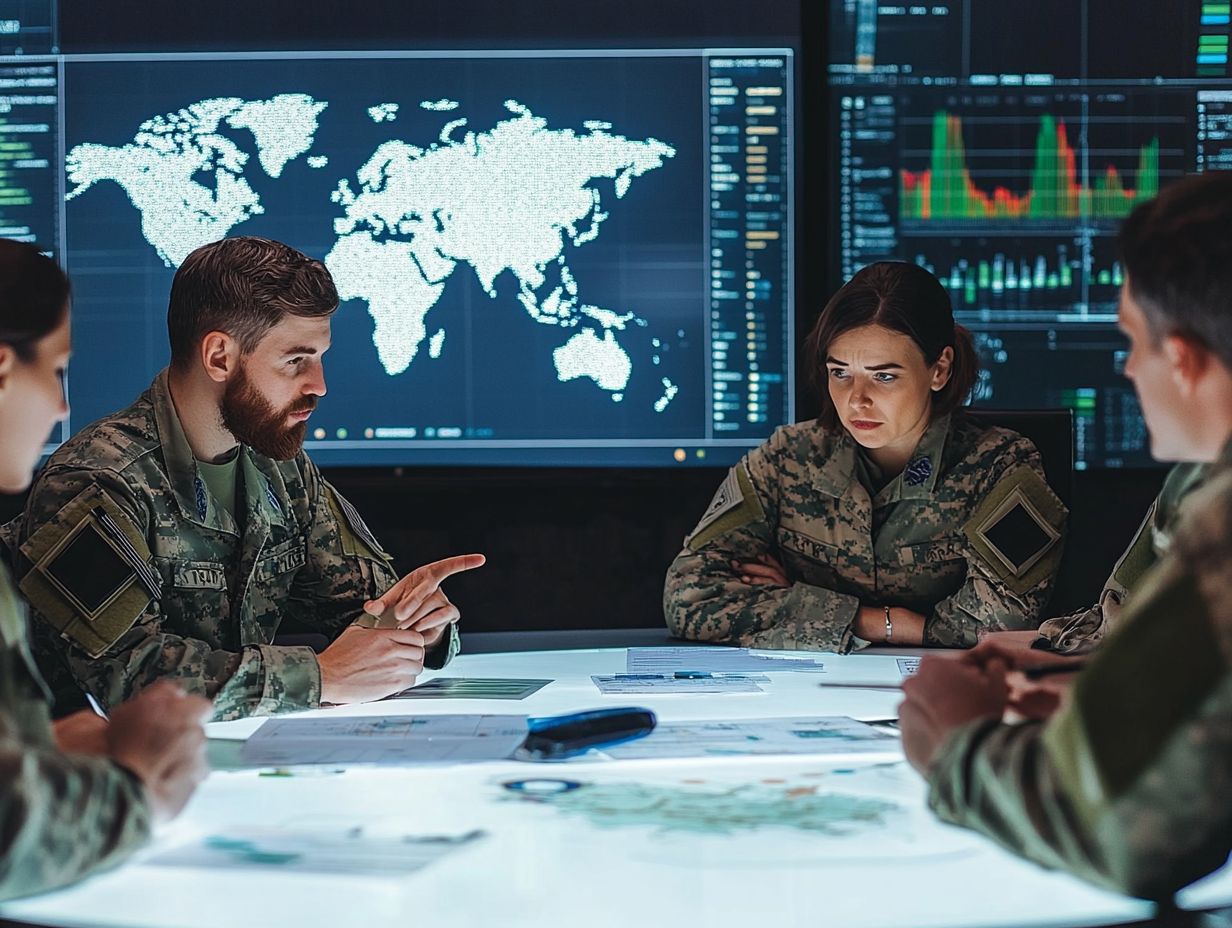
Key examples of successfully integrating public opinion into defense policy-making include responses to military engagements and shifts in public sentiment following significant events, such as the Russian-Ukrainian War.
In Taiwan, the influence of public sentiment is increasingly pivotal in shaping defense strategies. Citizens express strong views on sovereignty and regional security.
For instance, many Taiwanese have begun advocating for heightened military preparedness and stronger alliances with like-minded democracies. This shift is transforming how citizens engage with defense policies!
This urgent call has forced policymakers to reassess military provisions, highlighting the necessity for transparency and fostering community engagement in defense discussions.
Consequently, future military strategies will likely evolve not only to counter external threats but also to resonate deeply with the prevailing sentiments of the Taiwanese populace.
Ethical Considerations
Ethical considerations regarding the representation of public opinion in Taiwan are crucial, especially when navigating the sensitive landscape of defense and national security amidst rising geopolitical tensions.
It s vital to ensure fairness and accuracy in polling and research design. This directly influences how genuine sentiments from respondents are reflected. By doing so, you uphold democracy’s integrity and foster public confidence in governmental policies on military engagement and crisis management.
Ensuring Fair and Accurate Representation of Public Opinion
Accurate representation of public opinion in Taiwan builds trust in the government and its defense strategies. As public sentiment evolves in response to external threats, understanding these changes is more important than ever.
To achieve this, employ comprehensive methods that prioritize diverse participation across demographic sectors. Actively reach out to underrepresented communities to ensure your polling samples reflect the population’s diversity in age, ethnicity, and socioeconomic background.
Transparency in your research design is essential. By clearly outlining the methods used, sampling approaches, and data collection processes, you can build credibility and trust in the results.
By standardizing these practices, public opinion polls will better capture the complex sentiments of the populace. This leads to informed policy-making that resonates with the collective voice of the people.
Watch this video to understand how public opinion influences defense strategies.
Frequently Asked Questions
What is the role of public opinion in defense strategies?
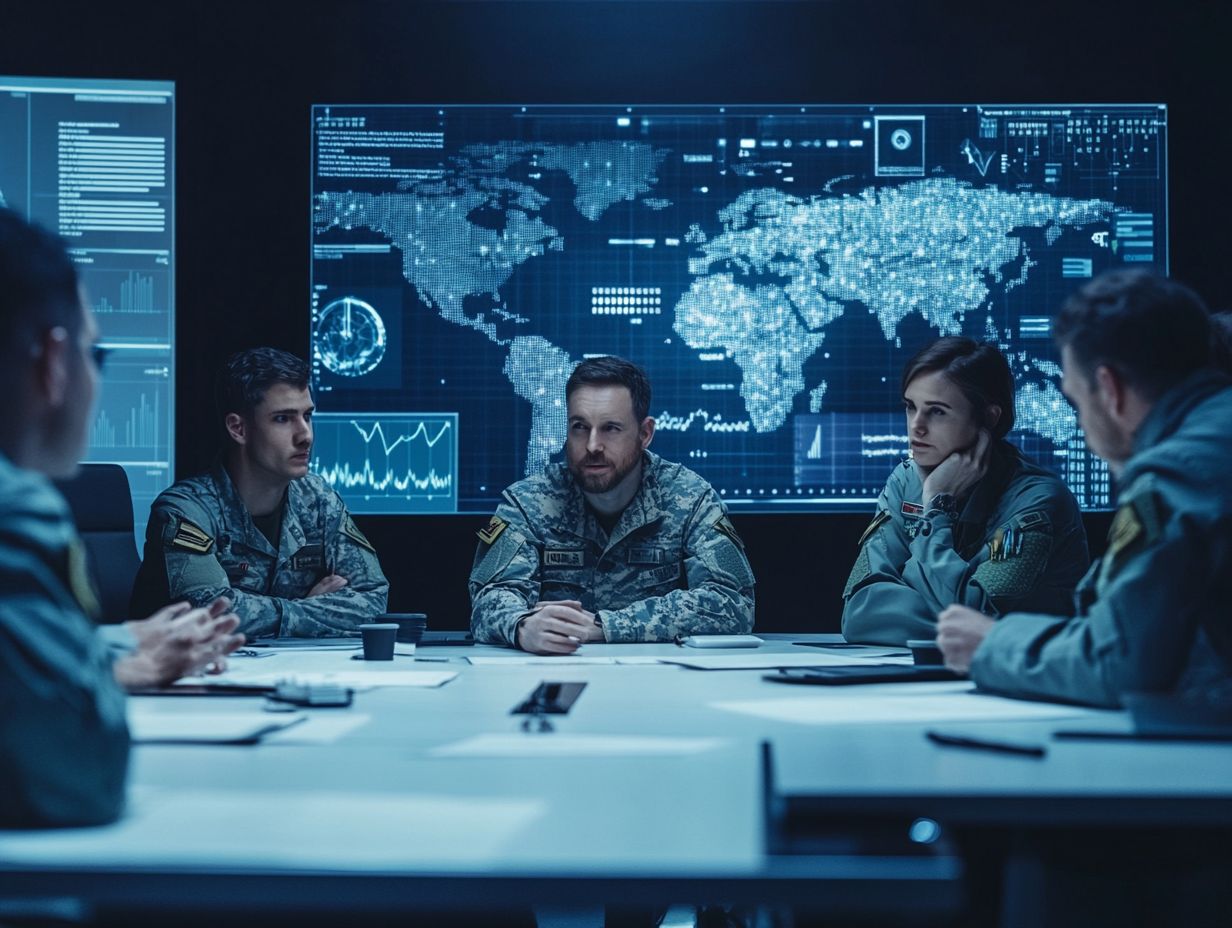
Public opinion is vital! It shapes our defense strategies and impacts our nation’s security.
How can public opinion be used to inform defense strategies?
Public opinion can inform defense strategies through surveys, polls, and focus groups. These methods help collect and analyze data on public perceptions, attitudes, and beliefs regarding defense issues.
What are the benefits of using public opinion in defense strategies?
Using public opinion provides valuable insights from the general public, who are ultimately affected by defense policies. It can also help increase support and trust in the government’s defense initiatives.
Are there any limitations to using public opinion in defense strategies?
Yes, limitations exist. Public opinion can be influenced by media, political agendas, and biases. It s important to carefully interpret and analyze this data to avoid biased or inaccurate decisions.
How often should public opinion be monitored for defense strategies?
Public opinion should be regularly monitored, especially during crises or significant events impacting national security. This ensures that defense strategies align with the evolving perceptions of the public.
Can public opinion also influence defense budget allocations?
Yes, public opinion can influence defense budget allocations as it reflects taxpayers’ priorities and concerns. Governments may adjust budgets based on public sentiment to maintain support and trust.


